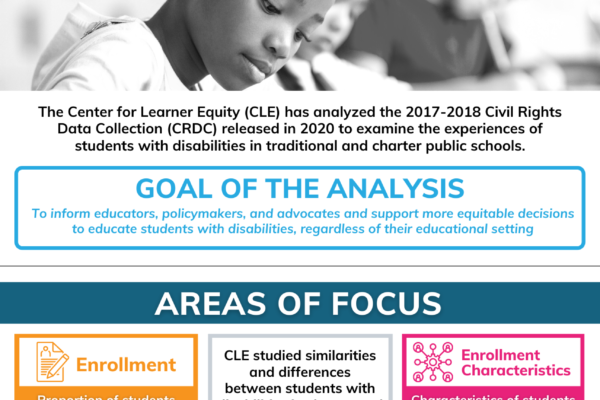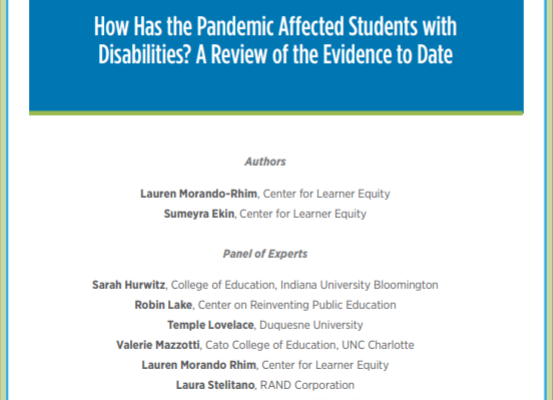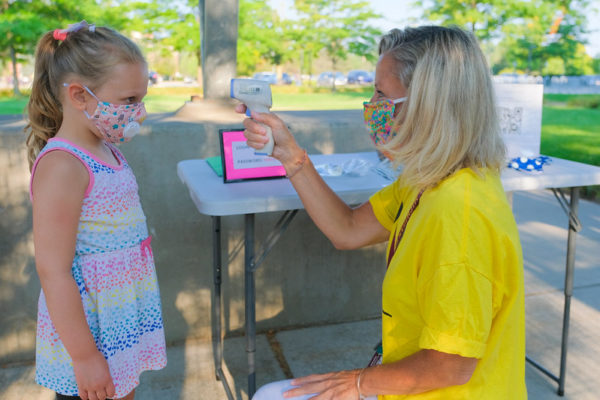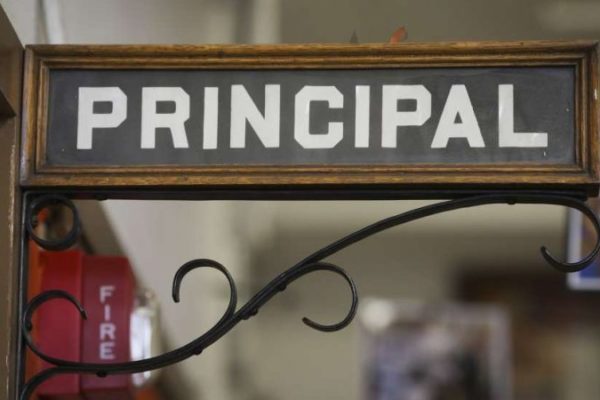The Center for Learner Equity (CLE) has conducted a secondary analysis of the 2017-2018 Civil Rights Data Collection (CRDC) released in 2020. The CRDC is the nation’s leading data set on civil rights indicators related to access and barriers to educational opportunities.
CLE’s latest brief, How Has the Pandemic Affected Students with Disabilities? A Review of the Evidence to Date, examines the impacts of COVID-19 on students with disabilities based on a review of hundreds of studies. In particular, the report highlights widespread disruptions to student’s Individual Education Programs (IEPs) and Section 504 plans. It also examines significant disparities in access to specialized services and draws attention to areas of further inquiry.
This brief comes out of our examination of leadership pipeline programs and specifically with individual leaders who have demonstrated exceptional commitment to improving education for students with disabilities. In particular, it focuses on their motivations and how to use that information to create future leaders.
Our latest publication, The Rising Tide that Lifts All Boats: Investing Stimulus Dollars with an Equity Focus, provides several specific strategies that districts, schools, and educators should consider to optimize the positive impact of stimulus dollars on students, especially those with disabilities.
The COVID-19 global health crisis has upended the continuity of learning for students with disabilities. Despite these ongoing challenges, the right to a free appropriate public education (FAPE) for students with disabilities remains in place. As schools shift to more distance learning, teams of educators are left to redesign what FAPE looks like when they cannot be physically present with their students. This guide offers a decision-making model that aims to balance individual student needs within a virtual learning context, as well as a range of exemplars showing how this model can be applied.
This interactive visual database includes data on enrollment, discipline, local educational agency (LEA) status, authorizer, and funding aimed at building understanding of the special education landscape and related trends across every state in the nation.
This document outlines the Center’s Equity Coalition and its seven core principles.
As the world determines how to handle the escalating outbreak of COVID-19, education leaders across the country are facing difficult and enormously impactful decisions. We hope this resource guide will assist educators and school practitioners in developing comprehensive plans for students with disabilities and creating effective and high-quality learning environments for all during this evolving national transition.
With the World Health Organization officially declaring that COVID-19 is a pandemic, a new sense of urgency has been introduced and we anticipate more schools will be closed. With this eventuality in mind, schools must think through the following critical considerations as they develop plans to educate students with disabilities.
This document provides a comprehensive list of the best discipline practices to employ in charter schools and a list of the mistakes to avoid.








